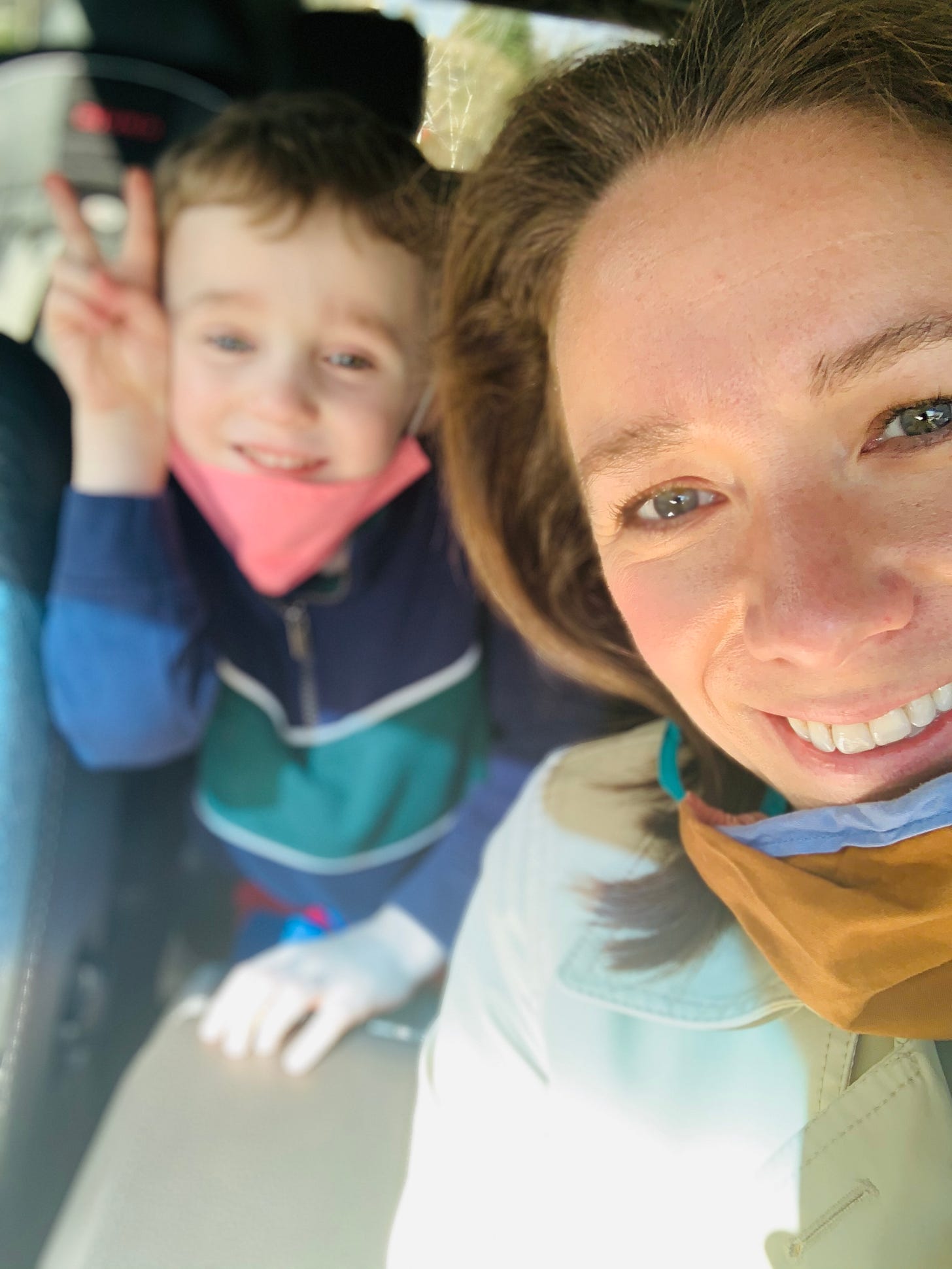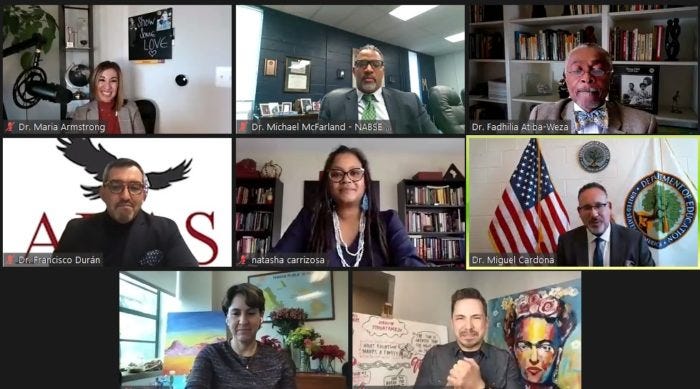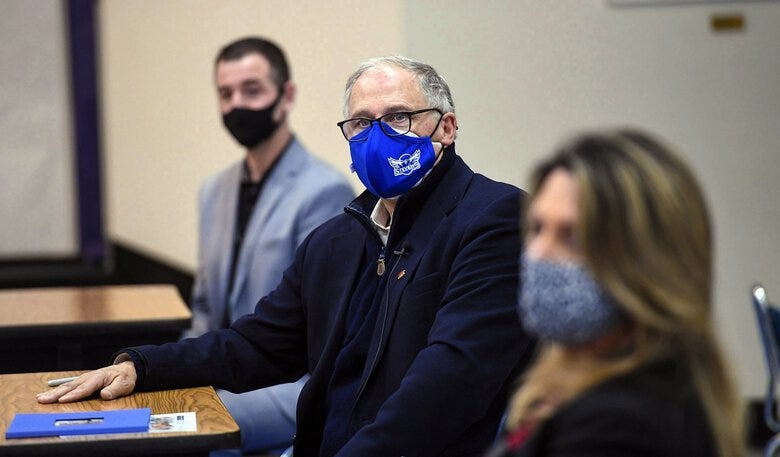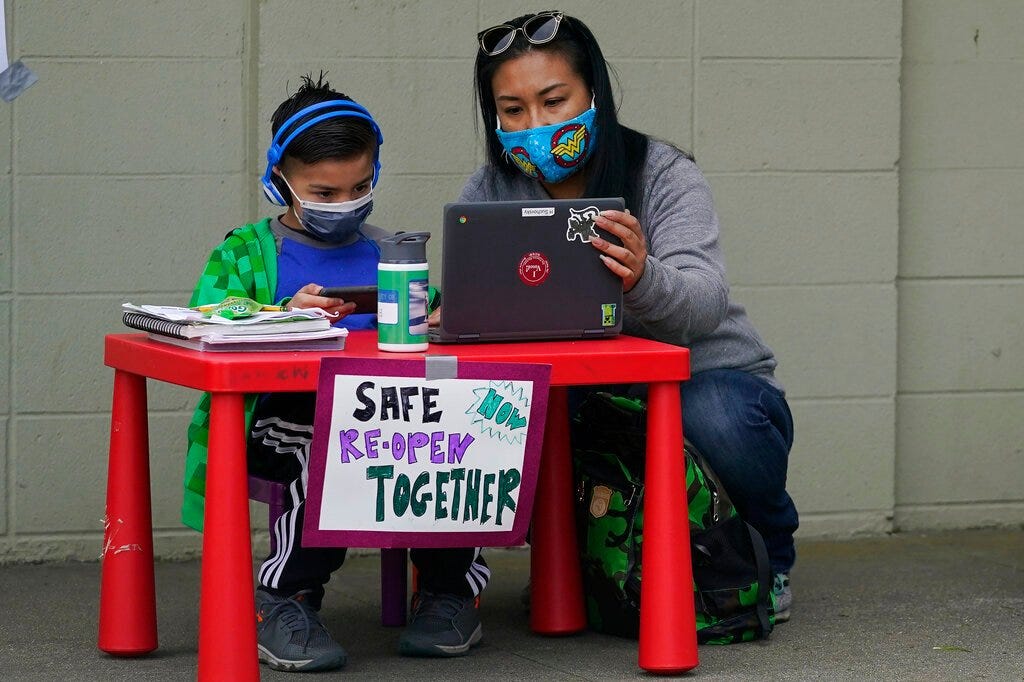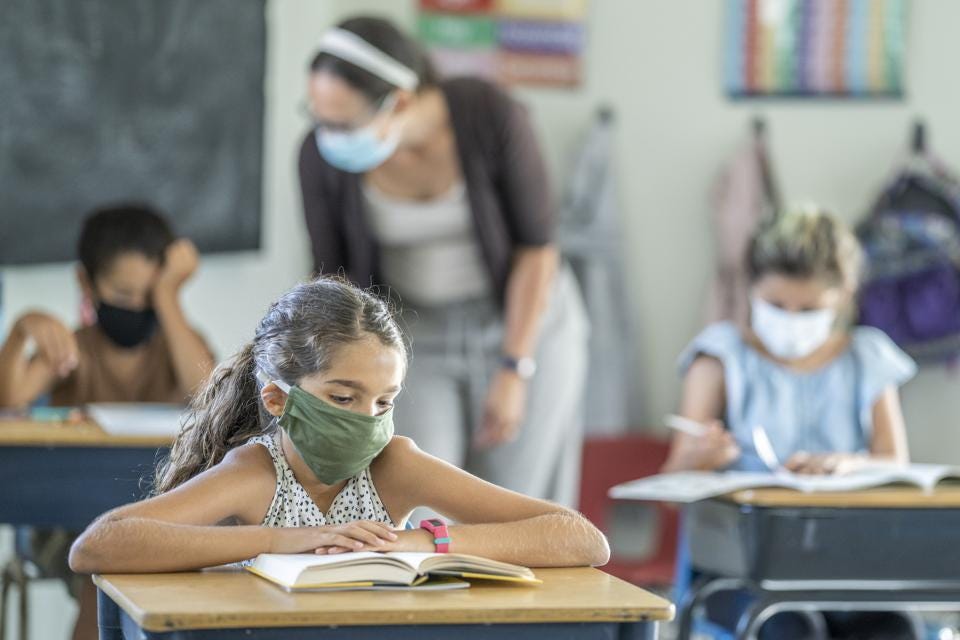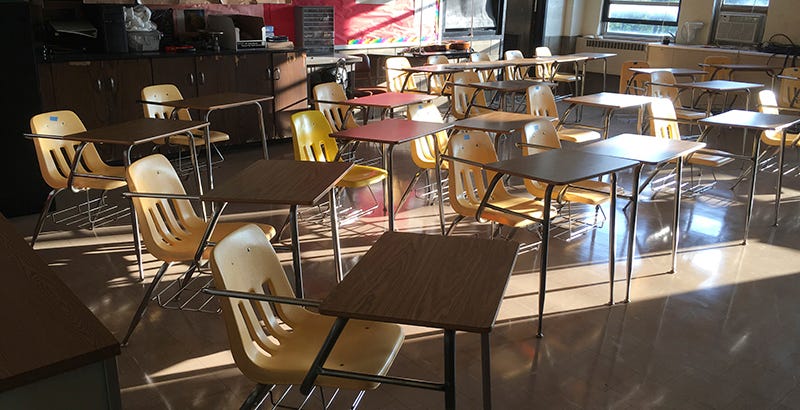I never thought that I would say this, but I really miss the hustle and bustle of getting out the door in the morning. One year ago, I remember dropping off the kids at school for the last time and asking them (what I always ask them before they hop out of the car), “What are you most excited about today?” and then we snapped a selfie. For one year we have been on this roller coaster journey together as a family and a community. In some instances we are relying on experts and leaders to guide us and in others we must dig deeply into our family and community wisdom.
Fast forward one year and my youngest has started some in person instruction twice a week; lifting his spirit and independence dramatically. This past Thursday my principal called and we discussed that I will do drop-off and pick-up once in the AM and once in the PM to accommodate their cohort schedule. It seems overwhelming to maintain that schedule and at the same time I see that it is a privilege I am afforded.
The reality is that the decision to return our kids back to school buildings is very, very personal. Individuals are considering their family health precautions, vaccine status and comfortability, and overall trust in our institutions. Based on layers of mistrust and historical trauma, school reopening has the potential to be disproportionately and negatively impactful to our racially/ ethnically diverse families. In order to rebuild and recover from the inequities that have been further reified by COVID-19, it is important that we collectively slow down, honor identity, and take the time to unpack individual needs. None of this is easy, all of this is complicated, but we must commit to moving forward together.
FEDERAL EDUCATION POLICY
President Biden and Congress made a monumental achievement passing the American Rescue Plan last month. Now, an additional $123B are headed to SEAs and LEAs across the country, but education leaders are already underwater. State chiefs and superintendents are at maximum capacity planning for reopening schools, making hybrid or in-person learning work for their communities, and negotiating the difficult decisions about assessment and other services. Some advocates and member organizations are supporting the implementation of COVID relief funding by releasing suggested expenditures, districts will likely need more robust roadmaps for spending options that can be tailored and refined for their local context.
U.S. Department of Education Continues Aggressive Plan to Safely Reopen Schools | USED
Cardona: Let’s support all students, bring education back to life | District Administration
Maximizing the Impact of Federal K12 Education Funding | 50CAN
How Schools Should Use Funding from the American Rescue Plan to Support Students | C4C
STATE AND LOCAL EDUCATION POLICY
This is the time of year when state and local education agencies begin preparing budgets and making policy changes for the next academic year. However, different from other years, districts leaders are also accounting for the uncertainties that COVID-19 might bring next year. We are already seeing states reconsider policies regarding graduation requirements and child care services.
Cooper, legislative leaders announce deal on K-12 schools | NC
Inslee signs bill allowing COVID-19-related waivers of some graduation requirements | WA
N.J. schools must teach about unconscious bias, economic inequality, new law says | NJ
Governor Hogan Announces $60 Million Pandemic Relief Grant Program for Child Care Providers | MD
REOPENING SCHOOLS
The challenge of reopening schools has become alarmingly political and divisive. The role of executive leadership at the federal and state level is more important than ever. That said, the success of national campaigns and executive orders is reliant on existing relational trust between leadership, institutions, and communities.
COVID-19 Testing in K–12 Schools: Insights from Early Adopters | RAND
Is it safe to reopen schools? An extensive review of the research | AEI
As Detroit classrooms reopen, district hopes safety measures will put teachers at ease | Chalkbeat
Congressional letter to committee chairs on investigation into effects of school closures | Congress
San Francisco schools to reopen starting April 12 under deal reached with teachers union | CA
Mass. Education Board Votes to Give Emergency Authority to Reopen Schools | MA
ASSESSMENT AND ACCOUNTABILITY
Over the past year of school closures, caregivers, parents, and families have become increasingly close to K12 education systems. But, it remains to be seen that families have also been afforded the positionality and information they need to most effectively advocate on behalf of their children. While we are all discussing the utility and impact of assessments this year, we have an opportunity to reconsider how assessment data can move closer to children, families, and homes in ways that will secure each student a prosperous and successful futures.
What Parents Need to Know About Tests | Ed Navigator
Congressional letter to Secretary Cardona from Democratic leaders on assessment waivers | Boman (D-NY)
TEACHING AND LEARNING
It is undeniable that teaching and learning has changed dramatically with the impact of COVID-19. Unfortunately, it seems that the teaching structures and instructional strategies fall in two starkly different types: innovation or underwhelm. In some instances, researchers have documented ways that communities are implementing innovation to respond to lower enrollments, decreasing engagement, or staffing challenges. In other cases, students are failing to receive the services that we would typically expect of our US public education system. This binary is increasingly concerning with additional federal funding on its way to our states and districts.
Changing Patterns of Growth in Oral Reading Fluency During the COVID-19 Pandemic | PACE
A year into the COVID-19 pandemic, school as we know it has been transformed | Chalkbeat
CDC misinterpreted our research on opening schools. It should loosen the rules now. | USA Today
UPCOMING EVENTS
Tuesday, March 16, 2021 (10:00 AM EST) Brookings is presenting a webinar titled Can family engagement be a game changer for education post COVID?
Tuesday, March 16, 2021 (2:00 PM EST) Hunt Institute presents The invisible tax: Educators of color and the water they carry.
Tuesday, March 16, 2021 (3:00 PM EST) GLR webinar on Strategies for partner with with families to support the return to in-person schooling.
Wednesday, March 17, 2021 (2:00 PM EST) Bellwether is presenting A Transformative Schools Package or Business as Usual?
Dr. Christine M. T. Pitts is a transformative and visionary education policy leader. As an Oregonian, raised by a multicultural family of educators, she brings over a decade of progressive strategic leadership experience and analytic skill to crafting state education policy. An educator and researcher by training, she has conducted legislation, governance, and policy analyses on a wide array of education issues using social network analysis and mixed methods research. In addition, Dr. Pitts is a facilitative leader who deeply understands and co-constructs local and national partnerships across stakeholder groups. Dr. Pitts currently coordinates between state and national policy leaders to investigate and advocate for policies that prioritize racial equity in education. Christine lives with her husband and four children in Portland, Oregon. Follow her on Twitter @cmtpitts.





